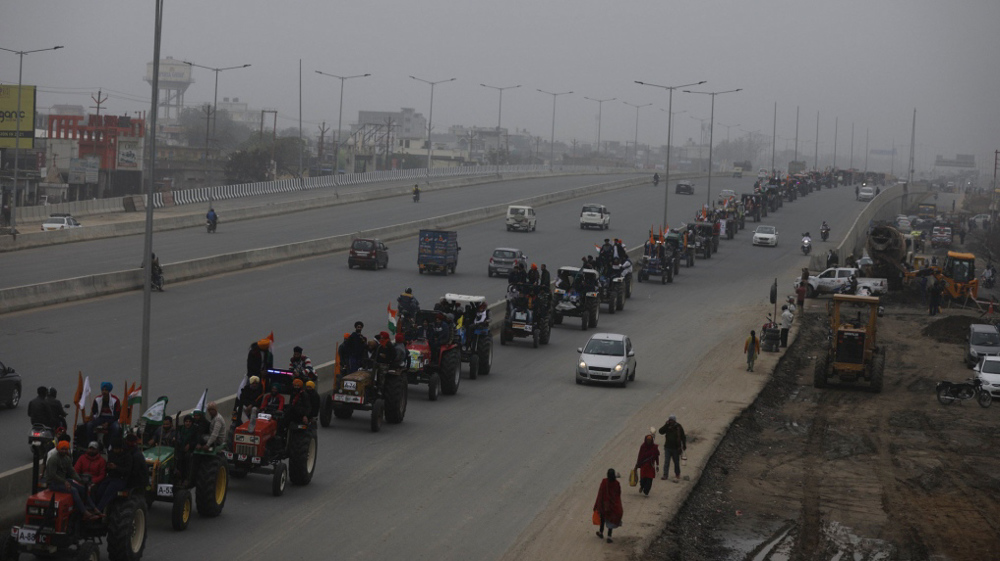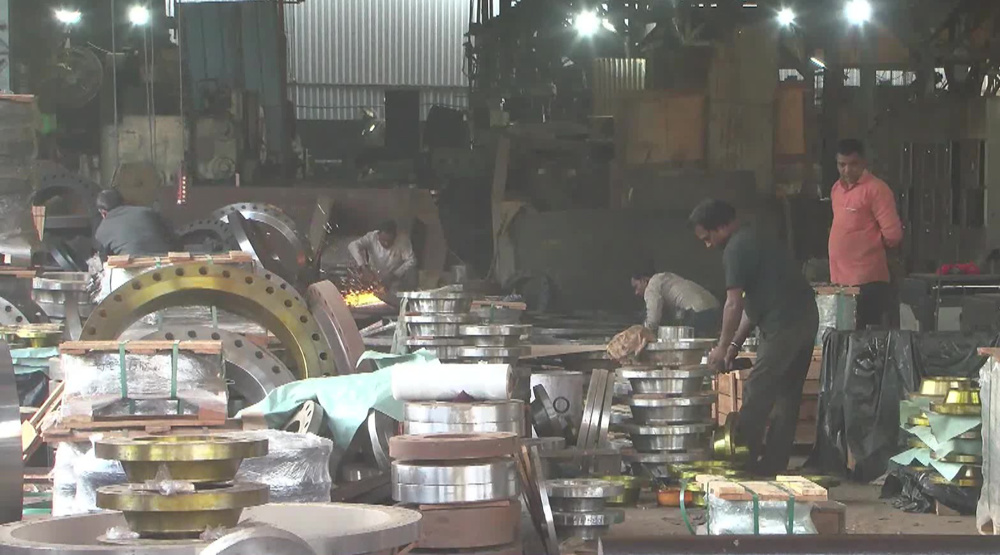Indian farmers block highway near Delhi to protest new laws
Farmers in India have blocked a key highway near the capital, New Delhi, following weeks of protests over the controversial agricultural reform laws enacted by the government of Prime Minister Narendra Modi.
On Thursday, tens of thousands of farmers — mainly from the Sikh-dominated northern state of Punjab — took to the highway near the village of Kundli outside New Delhi on their tractors in an attempt to build pressure on the government to withdraw the laws.
Protesters, young and old, rode a convoy of tractors numbering in the thousands, some with loud music blaring.
“We want Modi to repeal the three laws,” said a farmer from Punjab’s Gurdaspur district.
There was no sign of any police presence at the rally, which took place ahead of India’s Republic Day on January 26, when the farm unions have threatened to march on to the center of the capital if the laws are not revoked by then.
The latest development came after the seventh round of talks between the government and farm union leaders produced no results on Monday.
In September, Modi’s government passed three laws that it said were meant to overhaul procurement procedures and grant farmers more options to sell their products.
The farmers say the proposed amendments will create an opportunity for large private companies to enter and exploit the entire agriculture sector.
Indian farmers have camped on key national highways for the past three weeks despite cold weather and the coronavirus pandemic, calling on Modi’s government to revoke the laws.
Dozens of protesters have died in recent weeks, mainly due to the cold, with temperatures falling to 4 degrees Celsius.
Modi has tried to assure farmers that the changes will bring them new opportunities, but few have been convinced.
He has invited the farmers for more talks.
On Friday, the two sides will sit down for another round of talks.
Farmer leaders have accused the government of trying to weaken and discredit them by describing the protesting farmers as “anti-nationals.”
People in several other countries have also been protesting in solidarity with the Indian farmers.
The newly-passed laws could have a significant impact on consumers globally as reliance on India for spices such as turmeric, chili, and ginger cannot be taken for granted.
India is the leading exporter of Basmati rice and the world’s largest milk producer, according to the country’s Agricultural & Processed Food Products Export Development Authority. It is also the world’s largest producer and exporter of spices.
More than half of India’s working population comes from the agriculture sector, according to the most recent census in 2011.
Iran halts gas exports to Iraq amid surge in domestic demand
Belgium files to intervene in South Africa’s ICJ genocide case against Israel
Netanyahu appears in court for 65th time in ongoing corruption trial
Iran's government submits $111bn budget bill for year 1405
1.6 million Palestinians face acute food insecurity in Gaza: UNRWA
VIDEO | Free the Palestine hunger strikers in British jails ft. Calla Walsh
VIDEO | Press TV's news headlines
Iranian missile pierced window of Israeli intel chief's office in June, says senior general













 This makes it easy to access the Press TV website
This makes it easy to access the Press TV website